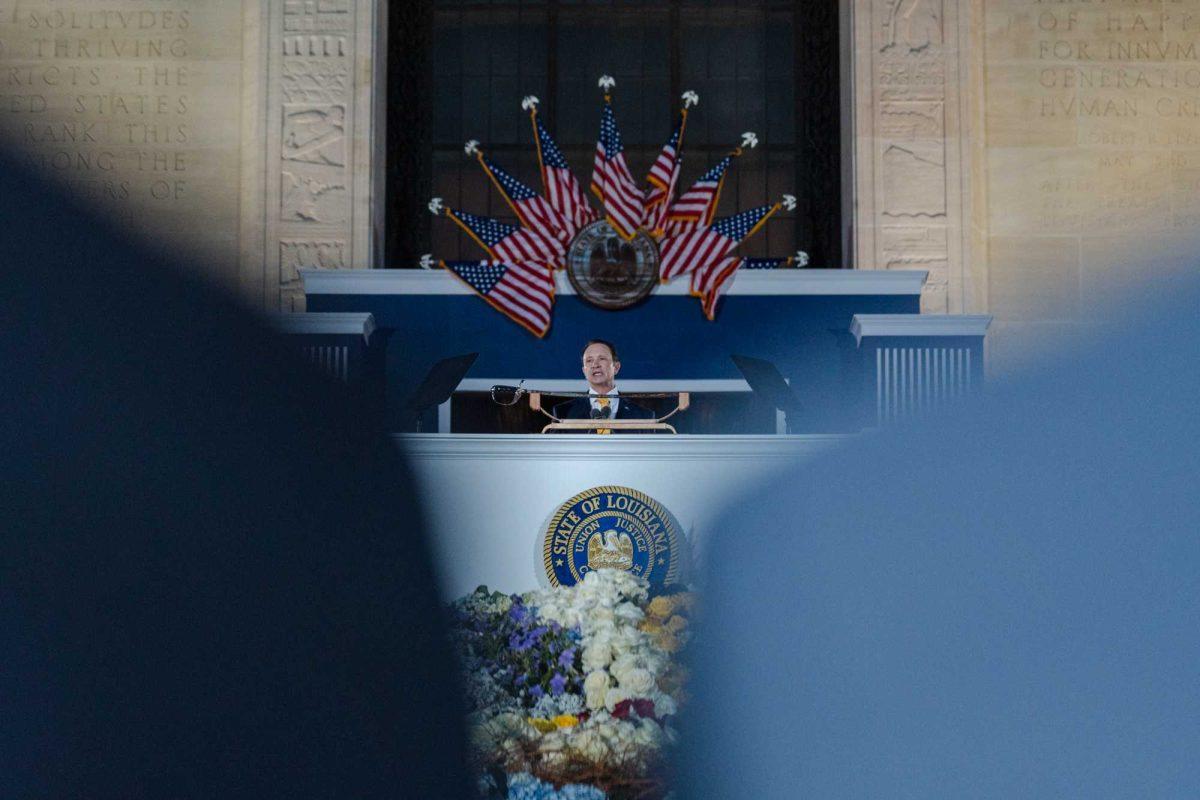The headlines surrounding the crime special session are mind boggling. One headline from the Louisiana Illuminator says, “Parole for nearly all Louisiana prisoners close to extinction” and another from The Advocate says “What is permitless carry? Louisiana residents could soon carry concealed guns without training.”
It doesn’t take much to see that the Legislature isn’t putting “victims first,” but instead making more victims in this state. What happens when you give incarcerated people no incentive to maintain good behavior in prisons?
Louisiana already has a stringent parole board that judges those eligible for parole on their ability to successfully reintegrate into society. Is eliminating parole (for everyone except certain juveniles) an effective response to “increasing crime?”
And on the issue of concealed permitless carry, does this law make it easier for police officers to intervene in high-risk situations when one person is possibly carrying a gun? Does it make their job easier? Is every bystander with a gun a good actor?
The answer to these questions, of course, is a resounding no.
One mistake shouldn’t define the lives of parolees who’ve jumped through every hoop imaginable to redeem themselves in the eyes of society. As a person of faith, it’s disappointing that we can pray and ask for forgiveness from God yet refuse to do our duty to forgive others once they demonstrate a wholehearted intent to right their wrongs.
One can’t assume every gun owner is responsible and the police in this state will have to take that into account once permitless concealed carry is the law of the land.
READ MORE: Louisiana residents may soon be able to conceal carry handguns without permits or training
These are just two of the major judicial overhauls the Legislature considered during the special session. And there seems to be no optimistic conclusion to this extraordinary crime session.
The conservative voices that want to address crime are justified in calling for finding ways to reduce it, but this strict, callous approach will never be productive. And the history of the failures of our criminal justice system in this state demonstrates this.
The top voices in the Legislature failed to mention that Louisiana is arguably the incarceration capital of the world. Our heavy-handed approach before the John Bel Edwards years didn’t bear fruit.
Flozell Daniels, the chief executive of the Foundation for Louisiana, summarized it best in an interview with The New York Times, “This argument that public safety and a diminishment of violence is somehow attached to mass incarceration falls flat. If that were the case, we’d be the safest place in the world.”
It might now be convenient to pass these laws within the Republican-dominated Legislature, but accomplishing campaign promises shouldn’t be the way we deal with crime in this state.
Popular sentiment shouldn’t triumph over the facts on the ground. Contrary to Governor Jeff Landry’s claim that crime is an ever-growing problem, across the United States and even in the Big Easy (which some legislators are afraid to go to), violent crime decreased last year.
My misgivings about the crime special session aren’t because the Legislature or Landry held a session to address it; I wholeheartedly agree that crime and Louisianians’ anxiety over it can be justified.
However, where’s that same enthusiasm for improving childhood education or ensuring that Louisianians have adequate access to health care?
READ MORE: Survivors split on death penalty as new execution methods near Louisiana governor’s desk
Don’t these issues deserve equal consideration, considering Louisiana’s abysmal education system and the constant threat of rural hospitals being closed?
This crime special session is just a political weapon that the Louisiana Republican Party wants to wield to appease its fiery base. I can’t say I’m surprised that the Republicans held this session because it’s clear that there’s a mandate from the people of Louisiana to enact such change.
But, it’s still another step backward for a state barely treading water.
Nathaniel Dela Peña is a 21-year-old political science and history senior from Alexandria.





